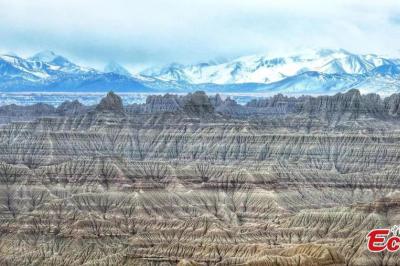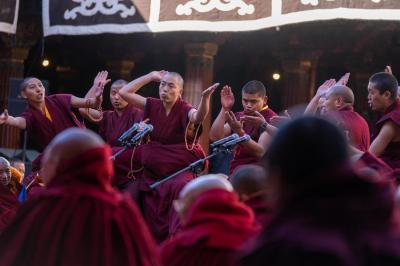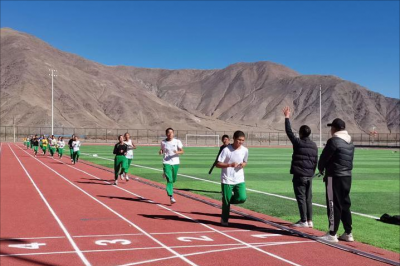| July 8,2016 -- The 2016 Forum on the Development of Tibet was held on July 7th and 8th in Lhasa, capital city of SW China's Tibet Autonomous Region. The focus of the forum: “New Stage in Tibet’s Development: Innovation, Coordination, Ecology, Openness, and Sharing,” with scholars and experts from over 30 countries and regions in attendance.
Among the 130-plus scholars and experts at the forum, over 60 attendees are from abroad, the most at any Forum on the Development of Tibet. Before the forum began, they visited various places in Lhasa and Lhoka, including homes of farmers, targeted poverty reduction sites, and production zones, etc.
After visiting Kesong Village, the first village to experience democratic reform in Tibet, Jin Haotian, a doctor of linguistics from the Language Institute at Minia University in Egypt, marveled at the villagers’ great life. “Even though they spoke Tibetan, and I couldn’t talk to them directly, I could tell they were happy.” Said Jin. He believed that Tibet’s local culture was well-preserved, especially historical sites like the Potala Palace and Jokhang Temple, which received comprehensive protection. “Maybe because locals saw them as holy sites, and also because the government really valued the protection of Tibetan culture.”
"The Tibet I saw totally surpassed my imagination, its development and city-planning left a great impression on me.” Said Horlick Sepuelda, the Associate Director of the Latin Languages and Culture Center at Beijing Language and Culture University, and Ecuadorian legal expert. “I’m from Ecuador, which is also on a plateau, so I know very well how difficult it is to build infrastructure like the Qinghai-Tibet Railway at thousands of meters of altitude. We saw how the Tibetans are living better and better lives, and also the vision the Chinese government has for developing Tibet.” French writer Brestler had the same view. On her third visit to Tibet, she said that compared to her first visit to Tibet in 2007, Tibet is now more modern and has more architecture than before. “It’s possible for people to realize their dreams.”
Human rights in Tibet is an often maligned topic in Western media. Horlick Sepuelda said, “I don’t understand why some media outlets want to say there is no human rights or freedom of religion in Tibet. I’ve seen locals in traditional Tibetan clothes everywhere in Lhasa, and they devoutly worship at the temples. In fact, it’s not just Tibet, everywhere I’ve been in China, the people enjoy religious freedom.” While Brestler said, “Tibet has more temples now,” but “the world often only pays attention to Western views.”
This forum is jointly hosted by the State Council Information Office, the People’s Government of Tibet Autonomous Region, and the People’s Government of the City of Lhasa, with five topics in discussion.
|
- Home
- News Tibet |Exclusive |China |World |Related News |Latest
- Documents White Papers |Others
- Photo Politics |Economy & Society |Culture & Religion |Human & Nature |Beautiful Tibet |Other Tibetan-Inhabited Area |Exchanges |Related
- Video News |Documentary |Micro-Video |Entertainment
- Art
- Tourism
- In Focus
- About Tibet






